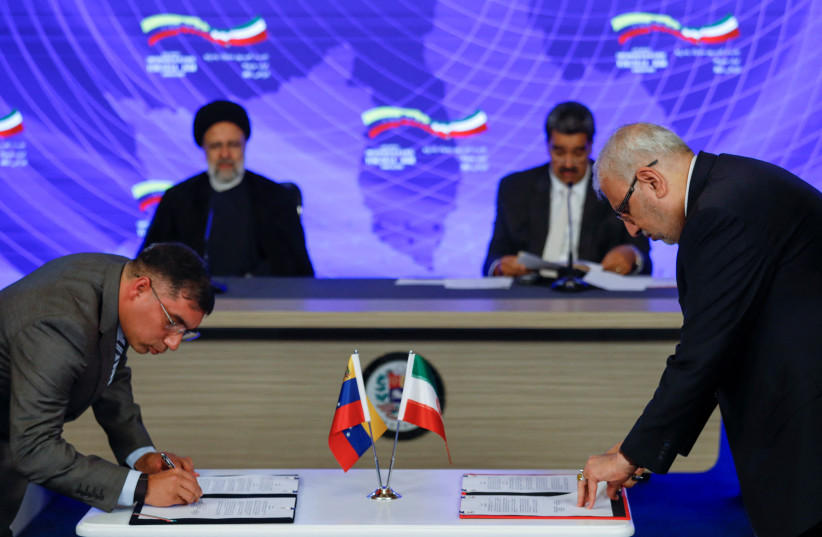Venezuela is risking a new war in South America. The country, run by the authoritarian regime of Nicolas Maduro, pushed a referendum on Sunday calling for Caracas to launch a war against its neighbor Guyana and seize the region of Essequibo, essentially amounting to taking over much of the territory.
While some media outlets have portrayed this as a “long-running dispute,” the reality is that the current drive to war by Caracas is not part of a long dispute, but is solely an invention of Venezuela’s leaders.
Venezuela has been a near-dictatorship for years now and has joined a number of anti-Western countries, such as Russia, Iran, and Turkey, in pushing a global agenda that challenges the United States and Western-led world order.
The goal of the current referendum is to lean into the global trend toward war and conflict. Russia’s invasion of Ukraine, Turkey’s invasion of Afrin, recent conflicts in the Caucasus, and the Hamas attack on Israel did not happen in a vacuum.
Now, Venezuela is risking spreading that trend to South America. It is also joining with China’s bellicose behavior in the South China Sea to try to upset norms that relate to international shipping and the importance of borders.

There has been an alarming increase in global incidents that seek to redraw long-standing borders or norms. The Iran-backed Houthi attacks on shipping in the Red Sea are one example; another is China slamming the US, claiming that an American ship “illegally” entered the South China Sea.
So what comes next for Venezuela?
The goal of the vote was to give Caracas the right to attack its neighbor. That attack would be difficult because the area Venezuela wants to invade is a dense jungle. But the country on South America’s northern coast is also making claims to energy resources in the jungle, as well as offshore.
This means that the referendum has major ramifications, one of which is that it could lead to conflict with Brazil, setting in motion a major war the likes of which South America has not seen since the Paraguayan war of the 19th century.
On the other hand, it will likely set in motion smaller tensions and give Venezuela a “right” to continue to threaten its neighbor, similar to how Russia managed to move into Ukraine: bit by bit. It first annexed Crimea and set up separatist republics in eastern Ukraine, and then it invaded and annexed more areas – and this over the course of years. Venezuela is following the Russian model.
It is also taking a cue from Ankara in its invasion of Afrin in 2018. Turkey invaded this Kurdish area of Syria and pushed the Kurdish minority out, occupying Afrin today.
CNN noted that “Sunday’s largely symbolic referendum asked voters if they agreed with creating a Venezuelan state in the Essequibo region, providing its population with Venezuelan citizenship and ‘incorporating that state into the map of Venezuelan territory.’
“In a news conference announcing preliminary results from the first tranche of counted votes, the Venezuelan National Electoral Council said voters chose ‘yes’ more than 95% of the time on each of five questions on the ballot.”
The goal of Venezuela is also to prevent international rulings that would show that the area it claims is in fact part of Guyana. It remains to be seen whether the international community, which is dealing with war in the Middle East and Ukraine, will respond.
